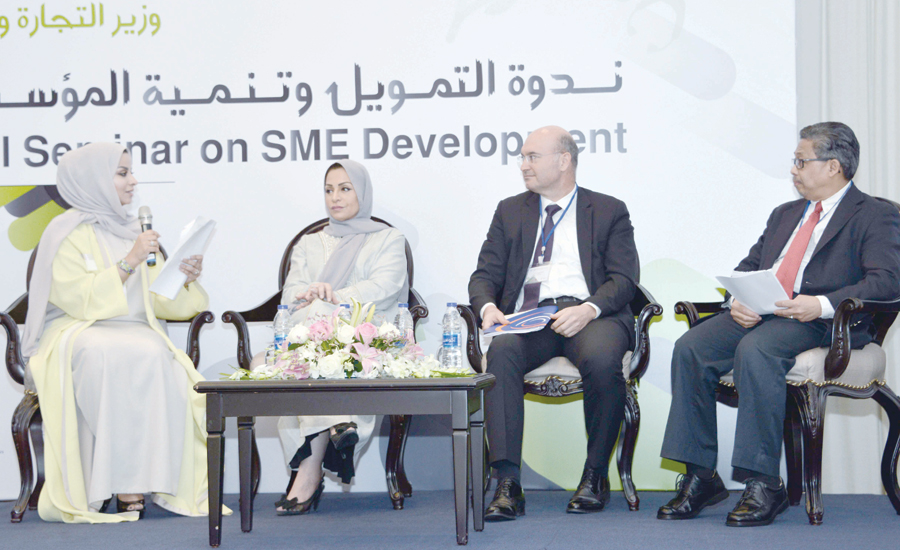


Zainab al Nassri -
MUSCAT, FEB 13 -
Small and medium enterprises (SMEs) have proven their ability to support national economic develop-
ment, accounting for as much as 95 per cent of total commercial establishments in many developed countries.
The importance of SMEs to the economic growth of a nation was the key theme of a regional seminar of SME development that opened at Crowne Plaza Hotel, Muscat, yesterday under patronage of Dr Ali bin Masoud al Sunaidy, Minister of Commerce and Industry.
The three-day seminar has been organised by the Oman Development Bank (ODB) jointly with the Association of National Development Finance Institutions in Member Countries of the Islamic Development Bank (ADFIMI).
With the participation of more than 100 experts, specialists and those working in related fields, the seminar aims at strengthening the rapport among development financial institutions of IDB countries, and analyse current and future issues and challenges faced by the SMEs especially those among countries in the region.
It also serves as a platform for sharing experiences of good practices in entrepreneur development and stressing the importance of digitalisation in SME development.
Strategies adopted by various countries in SME development, as well opportunities for utilising Islamic financing in SME development were discussed as well.
Dr AbdulAziz al Hinai, CEO of Oman Development Bank, indicated in his opening speech that SMEs are making a significant contribution to the GDP, while also maintaining high growth standards.
“SMEs represent 95 per cent of enterprises around the world and in developed countries, and they provide 40 to 60 per cent of the job opportunities. In developing countries, that figure decreases with SME contribution to the GDP only at 33 per cent. This is because those SMEs work in informal, untrusted frameworks,” Al Hinai said, stressing that innovation and origination are important keys to promote this vital sector.
Datuk Mohammed, Vice chairman of ADFIMI, noted that “SMEs make up a significant portion of the global GDP. According to the World Bank, the sector contributed about 50 per cent of the world’s GDP and more than 60 per cent in terms of employment and almost 90 per cent of business establishments. This clearly indicates that SMEs are indeed the main drivers of economic growth in most countries especially among the developing Muslim countries.”
Commenting on the challenges faced by SMEs, he said: “Despite their sizeable productive and social roles, they face many obstacles such as the absence of a unified definition. There are 60 definitions for SMEs used in 75 countries all over the world. Perhaps, one SME in Europe by size is presumably already a publicly-listed company in Africa,” he explained.
He added that access to financing has always been one of the most challenging concerns for SMEs not only in developing countries but also in those of high income economics.
“ADFIMI works in promoting and generating awareness within the realm of Islamic financing and its related activities especially in supporting SMEs in member countries,”
Presentations on the opening day of the seminar focused on the present status and future prospects of SMEs in the Middle East, the experiences of Oman, Turkey, Saudi Arabia, Malaysia and Iran in SME development, digitalisation of SMEs, and roles in achieving sustainable development goals.
Today presentations will look at traditional and alterative finance modules, and innovation, incubation and entrepreneurship based on Bahraini, Pakistani and Turkish models.
The seminar ends tomorrow with sessions focusing on new innovative tools for SME financing and SME development.
Oman Observer is now on the WhatsApp channel. Click here



